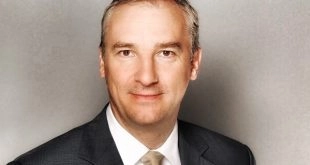SBC America’s Chris Murphy wonders whether the gaming industry will get on track with the latest proposals around machine play and social responsibility.
We can only hope that anyone from the Category B gaming machine sector was seated when they read through the Gambling Commission’s latest missive this week, calling for evidence on said machines. The implied message is that GC officials, and government policy makers, want to see some form of player tracking on games that they privately, if not publicly, consider to be a risk to public health.
The issue of player tracking is not new. It was first mooted publicly by the DCMS during one of BACTA’s annual conventions, probably around the time of the protracted and often toxic debate around the Gambling Act 2005.
The exact date is academic, but safe to say it was several years ago and the DCMS man at the time offered the view that the government would be open to the idea of debit card payments on gaming machines if the industry would respond with a more open approach to data and technology. In other words, you can have cashless payment methods but in return we will require the ability to track players and their habits.
The perceived danger around player tracking is, of course, that gamblers are a shy bunch who would eat their own nasal hair before sharing how much they’re feeding into a machine. Faced with the option of giving up their anonymity to play or finding an alternative way to gamble undetected, most will choose the latter.
Should the UK machine industry fear the worst from player tracking? The Austrian slot machine sector offers more than a clue, albeit in the sense of a worst case scenario. Players there have to carry an official ID card that entitles them to pass through a physical barrier before entering an area in which they can play.
The card must then be inserted into the slot machine whereupon it’s checked to see how much has been spent on gaming, whether they have enough funds to gamble and to assess whether or not that player has a problem, in which case there has to be some form of intervention from the operator.
The card also determines how long a player can spend at any one machine, ensures enforced breaks and prompts periodic messages reminding them how long they’ve been playing. And players can only play for a maximum of three hours per day. The effect on Austria’s gaming industry when the law was introduced was profound, with players staying away in their droves.
In fairness, some stakeholders in the UK industry have taken measures in a bid to avoid an outcome that would mirror the Austrian scenario. Novomatic UK, well versed in all things Austrian and gaming and more forward thinking than most, introduced its Playnice initiative for example, providing a web-based advice service which is promoted on all its products.
But while all boats rise with the tide, it’s true to say the opposite applies in equal measure. And with the tide being driven by technology and an increased focus on social responsibility it seems almost inevitable that some form of player tracking will become mandatory. If the tone of the GC’s latest call for evidence is anything to go by it now feels like more a question of when, not if.
It’s been said before, but it’s worth repeating if only as a warning to stakeholders that it’s wise to choose your battles not only on the basis of the ‘here and now’, but on how they will affect the long term future of the business. The FOBT debate was bad for every aspect of the UK gambling sector in that it created a damaging legacy for all branches of the business. No party came out of the slurry tank smelling any sweeter than the other.
Was that debate instrumental in forming the government’s current attitude to gaming machines and player protection? Perhaps not wholly, but it may have raised concern in the minds of policy makers that for too long the coin-op sector has been a little too quick to seek greater freedom without much in the way of return in terms of hard and fast measures to protect those who might be adversely affected by those freedoms.
The UK gaming industry, loathe as it may be to consider it, is facing some tough questions on player tracking. Whether it can stave off such a threat remains to be seen, but generally governments only tolerate gambling in so far as the tax revenue it generates. And they hate cash because it’s largely out of their control. So you can see where this is going. Downhill, which is incidentally the direction that shit usually flows!
But let’s finish on a cashbox half-full approach. The sector is certainly not short on talent and innovation and it has emerged from significant challenges in the past – the 2005 Act being one of them. The answer may well lie in some form of compromise, one that gives policy makers some concrete reassurance that will help them sleep at night, but without the need for erecting barriers and delving too deeply into players’ privacy.
It’s a controversial idea and arguably anathema to some personalities gracing the business, but instead of the industry arguing bluntly that it can’t happen and we won’t entertain it, how about asking the question; how can we make this work in a way that enables all those boats to rise back up with the tide?
Interested in this subject? Check out this session at next month’s Betting on Football Conference:
Betting shops – a new approach needed
Taxes are increasing, betting products are being restricted, running cost continue to climb, so what can be done in the retail betting environment? Can they be more efficient or is a new approach needed?
Speakers:
Jari Vähänen, Vice President, New Business, Veikkaus Oy
Ben Keith, CEO, Star Sports
Wayne Stevenson, Director, Corbett Sports
Troy Cox, Chief Commercial Officer, SKS365
For more information visit www.sbcevents.com









